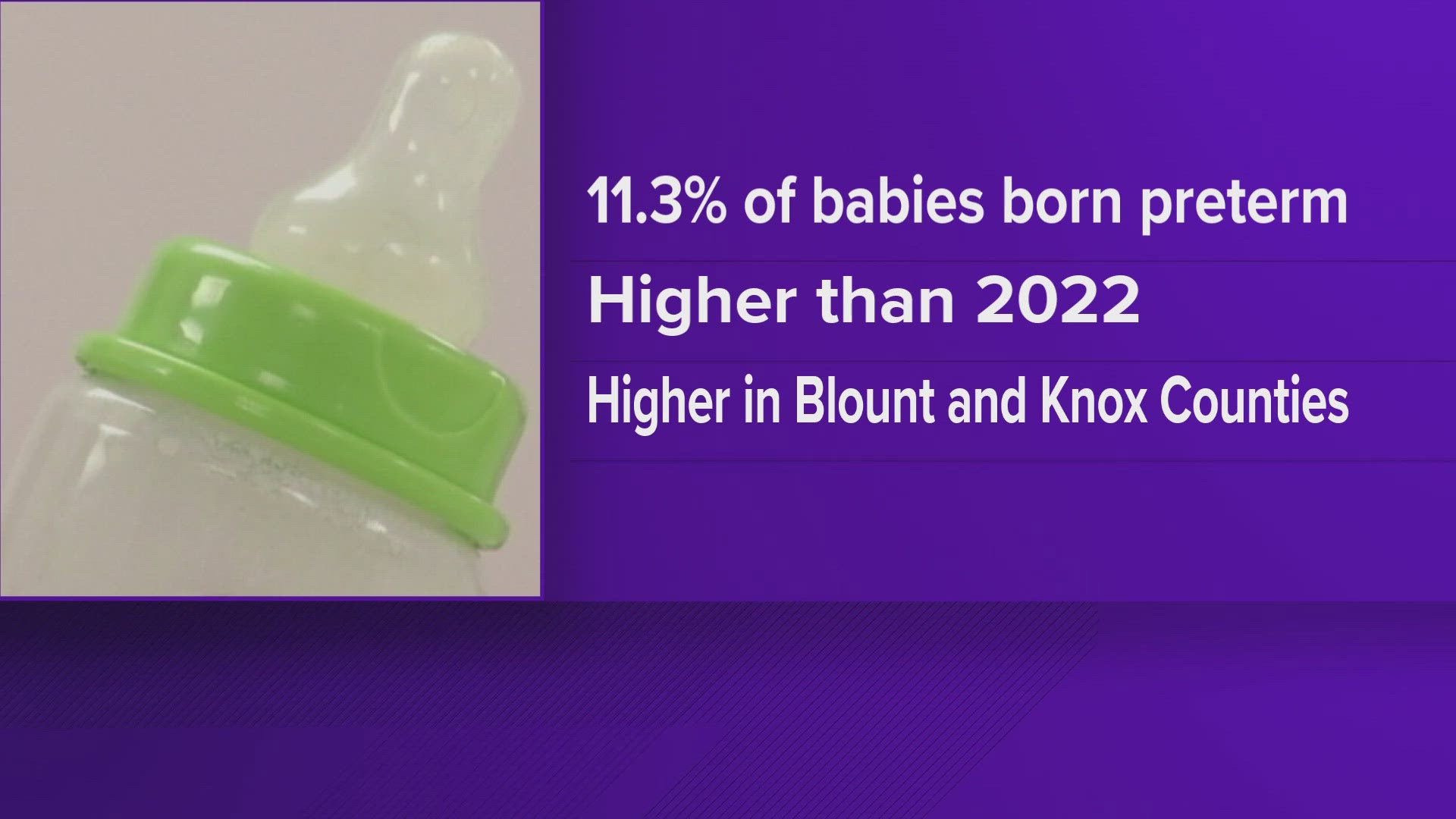![tenncare logo[ID=13044723] ID=13044723](http://www.gannett-cdn.com/-mm-/a3ab8fb31145bade654a88a149659f5c5911fd1d/c=0-38-490-458/local/-/media/WBIR/WBIR/2014/07/23/1406132274000-tenncare-logo.JPG)
Because of delays with a $35.7 million computer system, call center employees can do little except answer the telephone and pass along messages to TennCare. They cannot tell whether the state has received applications from the federal Health Insurance Marketplace, and they cannot tell people the status of their eligibility. An attorney with a law firm representing TennCare acknowledged those failings in a letter.
That letter has become part of a federal lawsuit that lawyers for three nonprofits filed against TennCare last month. They want the court to make TennCare provide documents and other evidence referenced in the letter by Monday. That's less than two weeks before oral arguments are scheduled on class-action status for the suit.
The 11 plaintiffs in the case include parents of babies who went without medical coverage and a woman with kidney failure. They are asking a federal judge to force the state to process Medicaid applications within a legally required 45-day period.
Pam Buntin of Hermitage is among the thousands of Tennesseans who may be added to the suit as plaintiffs if class-action status is granted. She has been waiting for months for TennCare to tell her whether she is eligible for coverage. She has lupus, diabetes, a lung disorder and scleroderma — a disease that is causing her organs to harden to the point of failure.
She began weekly calls after March 3, when she submitted a Medicaid application through healthcare.gov, the only way Tennesseans can currently seek coverage. The state has stopped staffing hospitals and local Department of Human Services offices with personnel who once helped people fill out applications and then tracked them through the system.
"TennCare told me all the way up into July that I wasn't active in the computer, that they couldn't find my application and the marketplace never sent it to them," Buntin said. "Finally, I got marketplace and TennCare on a three-way. Then the next day, somebody from TennCare said, 'We found your application. We are just now getting ready to process it.' "
The letter outlining the problems with the computer and the call center was written in June before the federal lawsuit was filed. Nicole Jo Moss, an attorney with Washington-based Cooper & Kirk, was responding to questions from lawyers with the Tennessee Justice Center and the Poverty Law Center.
She said workers at the $31 million call center did not have the ability to look at electronically filed applications sent to the state from the marketplace, nor did they have access to a pre-existing computer system TennCare has used for some Medicaid applications.
The letter said the call center "rarely" made calls to applicants. In those rare instances, there was no "predictable pattern" to say how soon a call would be made, and employees were required to try to reach people just three times.
Moss stressed that what she described in the letter were "temporary workarounds" until that $35.7 million network, the Tennessee Eligibility Determination System, becomes operational. The state has not made it clear when that will be.
The new computer system, a contract for which Northrop Grumman was selected after a request for proposals, was supposed to be up and running by Jan. 1.
TennCare contracted with Cognosante LLC to operate a call center and to process applications. The four-year contract is valued at $31 million.
Christopher Coleman, a lawyer for the Tennessee Justice Center, wrote in a court filing that TennCare should be able to easily provide the evidence about how the call center operated by Monday.
"The documents requested are within the control of defendants and should be readily at hand," Coleman wrote. "The reports regarding pending applications have been produced by state contractors for the TennCare Bureau to the TennCare Bureau ?? within the past four months, and thus are likely readily accessible."
On Tuesday, Tennessee Attorney General Robert E. Cooper Jr. filed a response on behalf of TennCare, writing that the Monday deadline would create a hardship.
"Plaintiffs seek to force defendants to produce documents less than one week from today that were requested, without any legal authority whatever, for the first time only six days ago," Cooper replied.
Before the lawsuit was filed, the federal director of Medicaid programs had put the agency on notice that it had failed to abide by its legal obligations. TennCare Director Darin Gordon's defiant response blamed many of the state's problems on the federal website healthcare.gov.
Gordon contends TennCare does provide in-person assistance. It has begun staffing state Department of Human Services offices with personnel specially trained to assist with applications on healthcare.gov. But lawyers for the plaintiffs say this policy effectively "bars the door" to citizens because the federal website is not designed to process all categories of Medicaid programs in Tennessee.
Buntin waited five months before TennCare sent her a paper application for the Choices program, which would send nurses to her home in Hermitage to change her urinary catheter and help ward off urinary tract infections. Two such infections over the past year have spread to her bloodstream. She was treated at Nashville General Hospital at Meharry, the city's charity hospital.
"I'll probably end up not being here when I do get some help," Buntin said. "I hate to say it that way, but that's the only way I can look at it right now."
TennCare lawsuit
The case currently has 11 plaintiffs, but thousands more could be added if a federal judge grants class-action status. The plaintiffs are asking the federal court to force the state to process Medicaid applications within the legally required 45-day period.
The judge
U.S. District Judge Todd J. Campbell took the case after Chief U.S. District Judge William J. Haynes Jr. and U.S. District Judge Aleta A. Trauger recused themselves.
Plaintiffs' legal team
Tennessee Justice Center, Southern Poverty Law Center and the National Health Law Program.
Defendants' legal team
Washington-based Cooper & Kirk.
The defendants
TennCare Commissioner Darin Gordon, Commissioner of Finance and Administration Larry Martin and Commissioner of Human Services Raquel Hatter.



